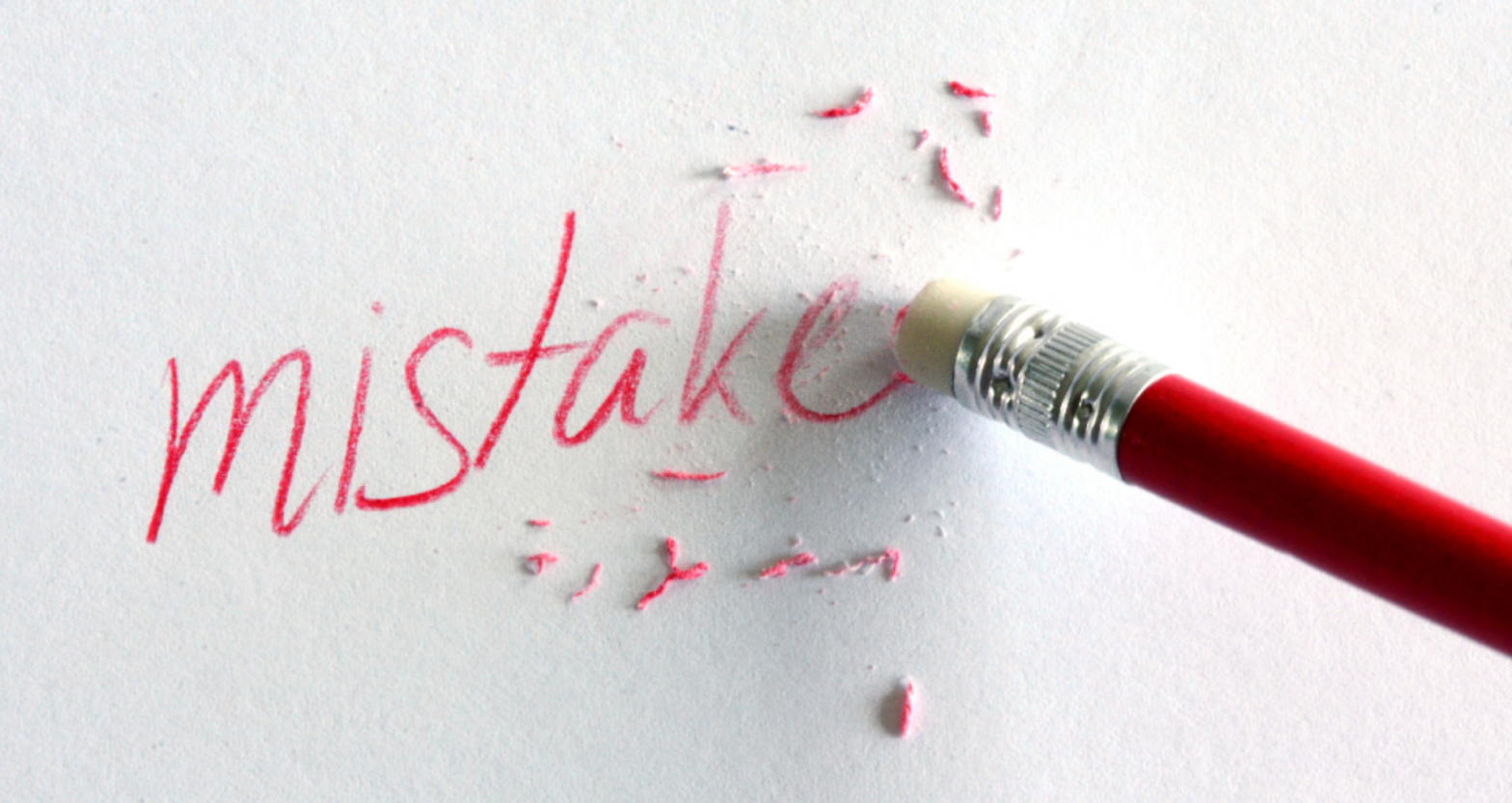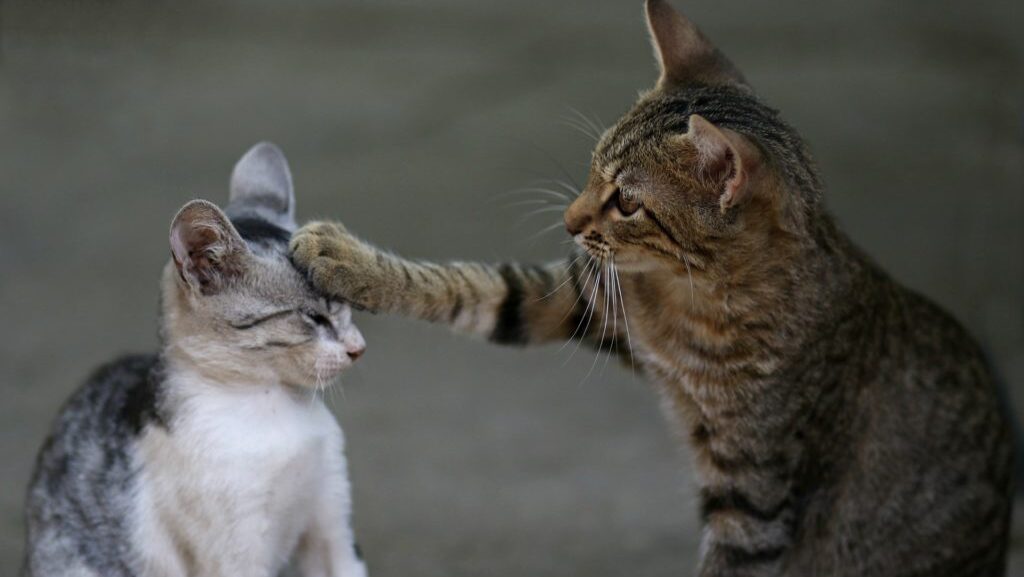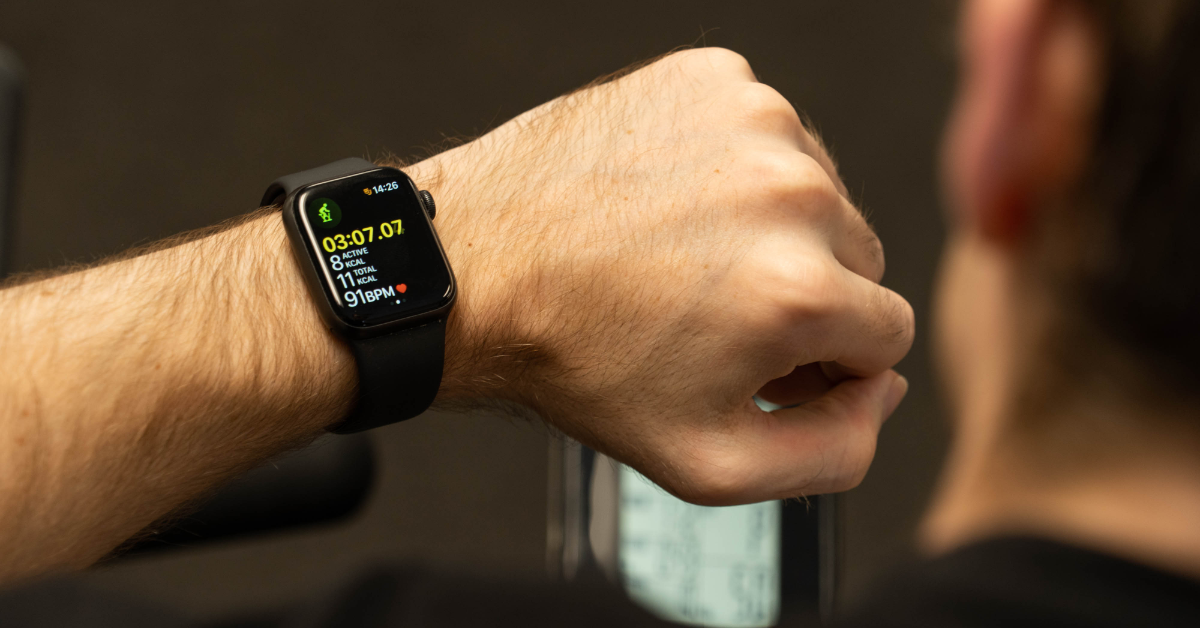My previous post, “The Problem with Perfection,” unraveled some of the mythology and beliefs about notions of perfection that limit and impede many people’s lives. They come from misinformed beliefs that detour, if not ruin lives. The concept of mistakes is the next step in our consideration of a life well lived.
The anxiety about making mistakes is very much rooted in the old paradigm of being as opposed to becoming. This worldview has us see ourselves as fixed and static, not as flowing and changing. This perspective roots us in the fear of making mistakes. The process of becoming is forgiving. In the flow of becoming we are no longer mired in the hardship of fear, insecurity or the notions of mistakes.
Most people try to avoid making mistakes, and some people experience a significant amount of apprehension and anxiety about committing mistakes. We labor over making decisions out of this fear, which tends to paralyze us. Such individuals labor over making decisions, significant or insignificant. People who struggle with making decisions tend to be avoidant, for the longer they can procrastinate the decision, the more they protect themselves from the illusion of mistakes. Yet, we don’t usually stop to consider exactly what constitutes a mistake.
Interested in bespoke marriage and relationship counseling from Mel Schwartz? Reach out!
Generally, a mistake is a decision or an action – or lack thereof – that we fear we’ll come to regret. Mistakes usually cause some degree of pain, loss, or struggle. Certainly we might agree that we don’t care for the consequences and hence we call it a mistake. The irony is that these events that we try so hard to avoid are sometimes precisely what we need to experience. Ordinarily, growth doesn’t occur without some of those challenging feelings we try so hard to avoid.
Many times I’ve heard people speak of their failed marriages as mistakes that they terminated in divorce. Yet, without such a difficult experience neither person would have had the opportunity to discover deeper truths about themselves. There is a personal evolution that occurs when we become accountable for whom we chose to marry. Through the painful experience, there is abundant opportunity to learn and grow. These insights, borne out of what we call mistakes, are necessary for our psychological, emotional and spiritual growth. They are also a fundamental part of our learning process.
If we look at our lives as a perpetual unfolding – a never-ending process of becoming – we might consider that we what call a mistake is simply a snapshot that we freeze in time. Yet the flow of life doesn’t freeze but cascades on, as long as our perspective enables us to see it as such. The perfectionist of course has an acutely difficult time with what I’m proposing as they remain anchored in the old fearful dogma.
As one door closes, another opens
The fear of making a mistake impacts not only our personal relations but also our jobs, careers and what otherwise might be inconsequential decisions. The “mistakes” made in the workplace may result in financial loss or even termination. An investment mistake causes loss of capital. This undoubtedly causes upheaval and stress. But as surely as a door closes, another one opens. The objective is to not stay mired in the loss but to look for the new door that is opening. The opportunity is always there if we can get out of our own way and see it. Invariably, crisis creates new opportunities. The decision that we might regret is only a temporary snapshot of a moment in time; whether we cement it into an eternity is our choice.
The avoidance of pain and, at times, loss or sadness, limits our experience. These travails are necessary to propel us toward greater growth and awareness. Our beliefs about mistakes and failure limit us from moving into a deeper and richer relationship with life. The fear of making such errors keeps us trapped in the very narrow comfort zone of the known. Yet, it’s the movement into that unknown that catalyzes our personal evolution.
A mistake is an event, the full benefit of which we have not come to realize.
The fear of making a mistake can be utterly imprisoning. Who gets to be the judge of what constitutes a mistake? From a spiritual perspective it might be argued that there is no such thing as a mistake. The very notion of mistake produces a reaction that induces fear and conformity. In this state we tend to dishonor our intuition as our inner voice becomes stilled and we choose the safer path. From this belief, predictability is cherished and uncertainty avoided. I should note that I’m not suggesting that driving while intoxicated is a sane decision, just as leaving a baby unattended would be unconscionable. I wouldn’t regard such acts as mistakes, but as breakdowns in reasonable, sound, or ethical behavior.
Anxiety about mistakes tends to have us surrender to the false comfort of what we think are the voices and opinions of others. These are the voices that instruct us about the proper choices. This tendency leaves us trapped in the orbit of consensus opinion. When we live in such a manner, we lose the creative, joyful spirit that allows us to more fully engage life.
What do we mean by failure?
The concept of a mistake is tied to the larger notion of failure. Just as with the word mistake, I would offer that there really is no such thing as failure. Imagine watching a toddler struggling to take their first steps, only to fall. How ridiculous would it be for us to proclaim that they failed? They simply haven’t yet mastered the skill of walking. Success has not yet been reached. It is altogether human to struggle toward what we’re trying to achieve. To refer to this process as failure is very destructive and self-defeating. The notion of failure is simply a belief that mind has created in our tendency to measure. It has no virtual reality unto itself. In other words, we made it up. The construct of failure is intrinsically rooted in the mechanistic paradigm. A machine may falter or fail, yet we have created a reversal of anthropomorphism when we have imbued machine-like qualities upon ourselves. The human has become as the machine.
It is in our life’s purpose to be explorative and to expand outward. If you are excited about new experience and opportunities for growth, then you don’t likely pay much attention to the concept of mistake. On the other hand, if you avoid such movement, you are likely living with the fear of mistake. As such, you’re prohibited by the defining boundary of your familiar zone.
When we find ourselves terrorized by thoughts of mistakes, we lose the opportunity to live more fully. There is never a single correct decision or pathway. Constructs such as mistakes and failure block us from the richer and more rewarding texture of life’s possibilities. Liberating ourselves from this fear enables our lives to unfold with greater purpose. Mistakes and failure are cultural constructs embroidered upon us by our personal biography and our larger worldview. Embracing a universe, which is participatory, inseparable and flowing eases the burden of such constructs. From this new vantage, we may embrace the flow of life and ease the tyranny of fearful thinking.
Rather than asking yourself, “Could this be a mistake?” you might inquire, “Would this be in my authentic path?” Authenticity doesn’t honor fear or the construct of mistakes but emphasizes living in our truth, free of concerns of judgment. Fear of making mistakes is typically indicative of our sensitivity to what we think others think of us – a very circuitous and tentative way to live our lives, I’d think. What do you think?
More from Mel…





Thanks Mel, that you through your post had made me to think, look back into my life. I do believe the incidents(which i’m not calling as failure) i passing through are for my good only.
Failures and mistakes are very necessary in a person’s life. when as a child with no failures and mistakes (supported by parents), would find it very difficult to adjust when he enters into the real world where he/she face many of the same. mistakes are necessary for a person to be complete.
As you have explained, there is nothing as failure. it depends on the way we attribute the action which we later consider as mistake then as failure. in some cases (especially in children), they would be more concerned about the significant others in their life. whether their action would affect the positive regard towards them like “if i do this how my dad would take this”
i believe positives and negatives are very necessary to make life balanced. victory lies when we convert the negatives into positives.
” the opposing force will become the driving force when it is taken at the right angle”
Hi Asha,
And even more so when we come not to label the negatives as negative!
Every ‘bad’ thing that has ever happened to me in my life has contributed to who I have become and since I love who I am I must appreciate those things, people, etc. that helped me become who I am.
Without those experiences I could not be who I am.
If someone with a magic wand were to show up and offer to remove some of my past I would tell them to leave it be.
Just to give you an example of the magnitude, a shrink once told me that folks with histories like mine lived in cardboard boxes under bridges so it is not a stubbed toe I as saying to leave be.
All of it contributed to who I have become and I would not give any of it up. I have harvested much of the gain by looking at the silver lining.
I am strong because once I was weak and vulnerable.
I have been independent and self sufficient for a long time because once I was dependent. I have to say I am growing even more in this area and allowing myself to accept help from those who wish to help where once I was so fiercely independent that I always refused but that was fear of being vulnerable again and I have grown past that; understanding that the vulnerable Jeanine will never exist again. I know too much and have come too far to ever go back again.
I am a strong role model for my children and their friends who also call me Mom because of where I once was.
I can help others who have been in dark places because I understand what it is like there and can give hope and inspiration to many who I would not have been able to reach if I had never been in the dark places myself. My rise to joy and happienss would not inspire them if they did not see that I, too, came from a dark place. I give hope to them because I help them believe that no matter where you are you can get to joy or even better than joy.
Is that a wonderful gift or not? Of course it is and it comes from my darkest days.
Life is truly perfect and then it gets better.
The worst of times can give you the best of who you become if you will only allow yourself the freedom to go there.
Serendipity?? I have been struggling with this avoidant path toward no mistakes my whole life and it has got me nowhere but hell on earth. I have read some good material recently on “letting go” which is similar to what you suggest. Much easier said than done when the “mistake” avoidant behavior has been so long reinforced in my brain. I have been asked and ask myself what is the secondary gain to such a miserable life and the answer in my case seems to be maitenance of the known hell for its “safety and familiarity” seems less threatening than does changing to your suggested approach which could produce all kind of unknowns. But I am so tired and frustrated by this present/past life, I am becoming willing to risk the unknown.
Thanks for your excellent article.
Hi Cary,
What you and others are searching for might be called, “freedom from the known.” The certainty and predictability of fearful behavior leads to such a soul-defeating conformity, that life isn’t well lived. Embrace the opportunity to come out of your familiar zone and invite the disquiet of uncertainty. Enjoy your shift!
Very well written. Really enjoyed reading it and opened a new way of thinking for me when it comes to decision making and the way i look at my ‘mistakes’ in the past :-).
Hi Farhan,
Where do you live? Perhaps the next step is in not contemplating “mistakes” in the future.
In business for eighteen years, I went to my insurance agent to upgrade my policies. She said” all strate with your workers comp, disability?” Yes my payroll company takes care of that . Come to see I have disability but not workers chomp. Ok I say get me WC. Letter one week later asking who carried your WC prior to? no one my reply. I receive a fine letter for $20,000,000 I thought it a mistake to buy the WC.